Biden promised to end the Trump-era immigration policy. On the ground, it’s more of the same
The Biden administration’s handling of a border crisis in Del Rio, Texas, has drawn criticism from all sides, writes Richard Hall

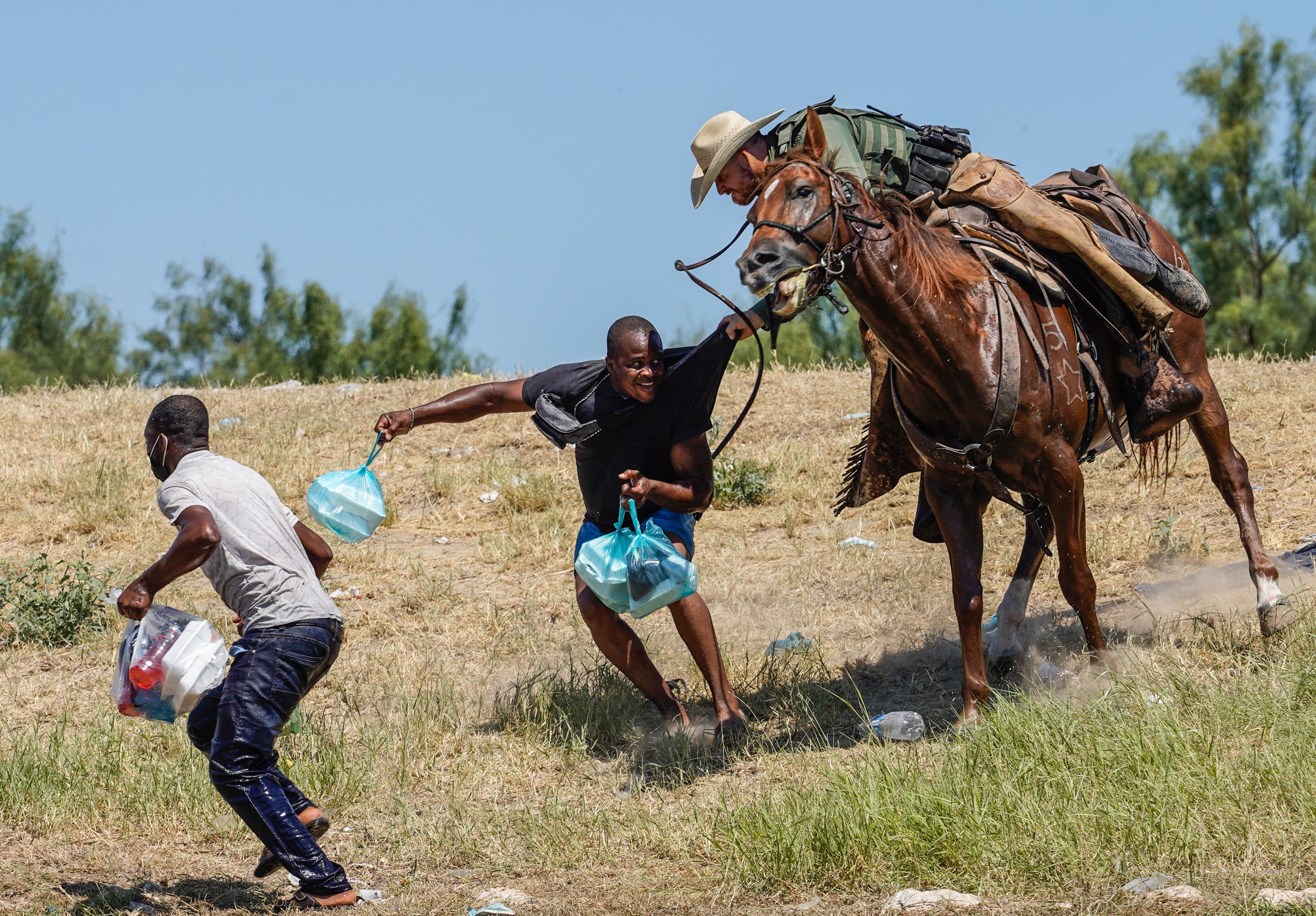
A mother and child step down from a dusty border patrol bus, each carrying a small bag and a weary look. For the last few days, they were among thousands of Haitians who sheltered in a squalid camp under a bridge on the edge of the town of Del Rio, Texas, after crossing the Rio Grande from Mexico.
After a final check, the green-uniformed border patrol agents direct them to a group of volunteers with a local charity waiting for them on the pavement. At that moment, after a treacherous and deadly journey that likely lasted for months, they are free to go, and can begin the process of applying for asylum in the United States.
They are the lucky ones. Some buses did not come to a transfer centre like this, but instead headed directly to the airport, where a flight was waiting to take them back to Haiti, a country convulsed by violence, political upheaval and natural disasters. Many were not told where they were going until they reached the airport, and none were given the opportunity to apply for asylum.
Of the estimated 15,000 Haitians who found themselves corralled under that now-infamous bridge, approximately 2,000 were sent back to Haiti, according to the Department of Homeland Security, making it one of the largest mass expulsions in recent US history.
Joe Biden campaigned on a promise to give US immigration policy a “fair and humane” overhaul, but the events in this small border over the past week have created the impression for some that not much has changed from the Trump era.
Mr Biden’s liberal use of expulsions has drawn fierce criticism from immigration groups, Democrats, and the government’s own special envoy to Haiti, who resigned in protest. They were carried out under a decades-old law that allows the government to block entry to individuals during public health emergencies. The Title 42 clause was rarely used until Donald Trump put it to action in March 2020 to rapidly expel migrants and asylum applicants, citing the Covid-19 pandemic as justification.
Human rights groups harshly condemned the practice as unlawful, and have challenged it in court, but it has continued under Joe Biden at an even higher rate. A total of 605,509 people were expelled using Title 42 in the seven months since Mr Biden’s inauguration, according to US Customs and Border Protection (CBP), more than double the 255,163 expelled between March 2020 and January 2021 under Mr Trump.
On the ground in Del Rio, a city of some 35,000, anger among migrant advocates has been palpable.
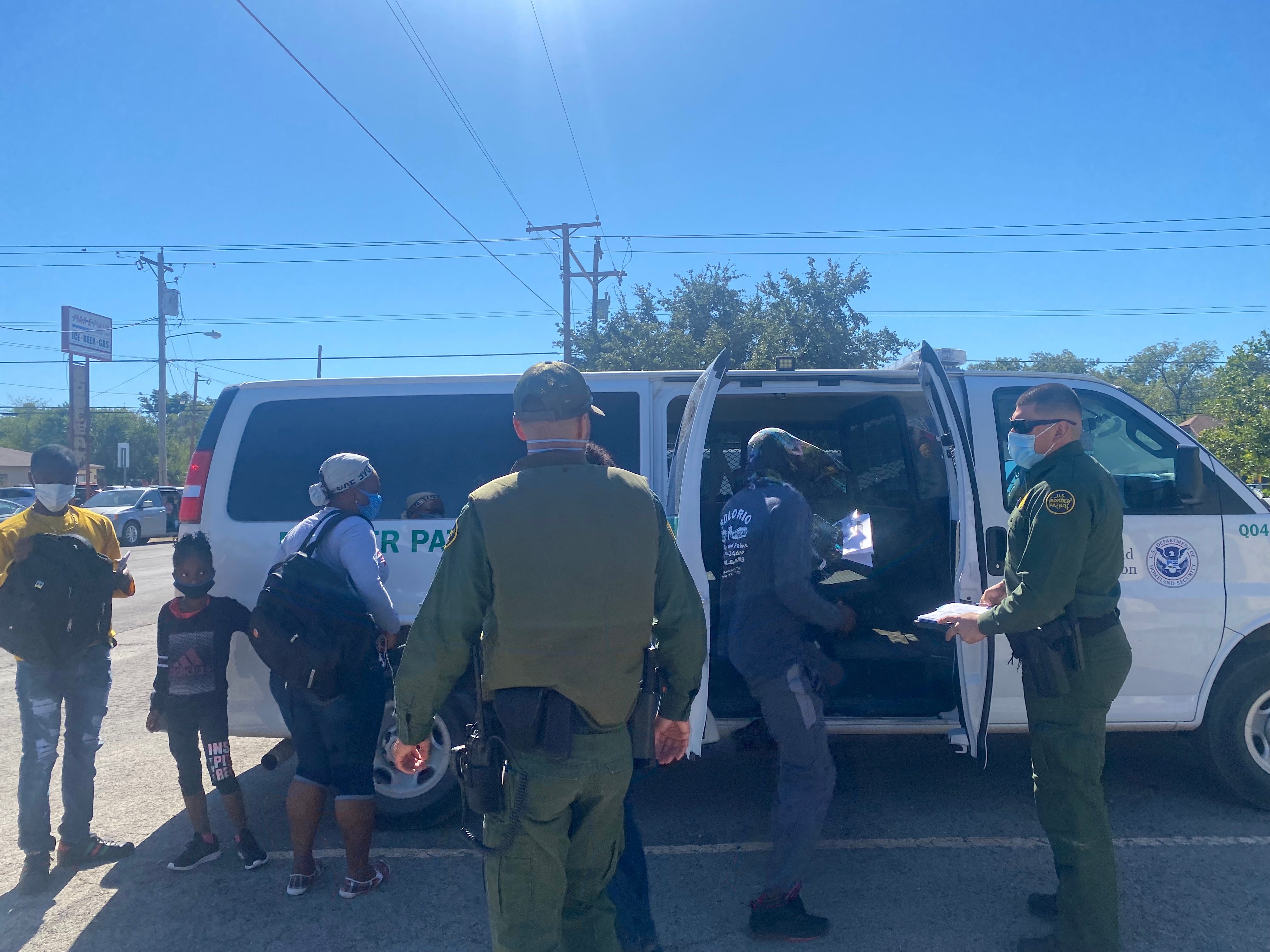
“It’s outrageous and egregious that the Biden administration is continuing the policy that the Trump administration designed to keep people out of this country, against the law, and in violation of their rights to seek asylum,” said Wade McMullen, human rights lawyer with Robert F. Kennedy Human Rights, who came to Del Rio to help arriving migrants.
Mr McMullen, who spent days at this transfer centre a few minutes from the border receiving migrants who had been held under the bridge, said the policy made no legal or practical sense.
“If they’re using a public health emergency to justify the expulsions, either they know a person has Covid-19 and they are sending someone with a deadly virus back to an extremely precarious and dangerous situation, or they’re not testing that individual, they don’t know whether they pose a public health threat, and are expelling them anyway,” he told The Independent.
The latest crisis began with the arrival of some 15,000 Haitians to the US-Mexico border at Del Rio. Many had come not from Haiti directly, but from Chile, Brazil and other South American countries, to where they had fled in the years following Haiti’s last devastating earthquake in 2010, which killed 200,000 and displaced some two million people.
A combination of factors drove this latest increase in Haitians trying to cross. Earlier this year, the Biden administration renewed Temporary Protected Status for Haitians in the US. Many believed they would be allowed entry into the US, but the status only applied to those already in the country. Mr Biden’s election was enough for some to hope that they may be allowed to enter the US.
Border crossings by Haitians rose to record highs over the last year. CPB officials encountered Haitian migrants crossing illegally almost 28,000 times along the southwest border between October 2020 and August 2021 – 24,000 of those encounters took place in Texas.
With the arrival of such a large group all at once in Del Rio, authorities were soon overwhelmed. The dire conditions in the camp caused a media firestorm, only to be inflamed even further when photographs emerged of border patrol agents on horseback trying to corral migrants as they crossed the Rio Grande.
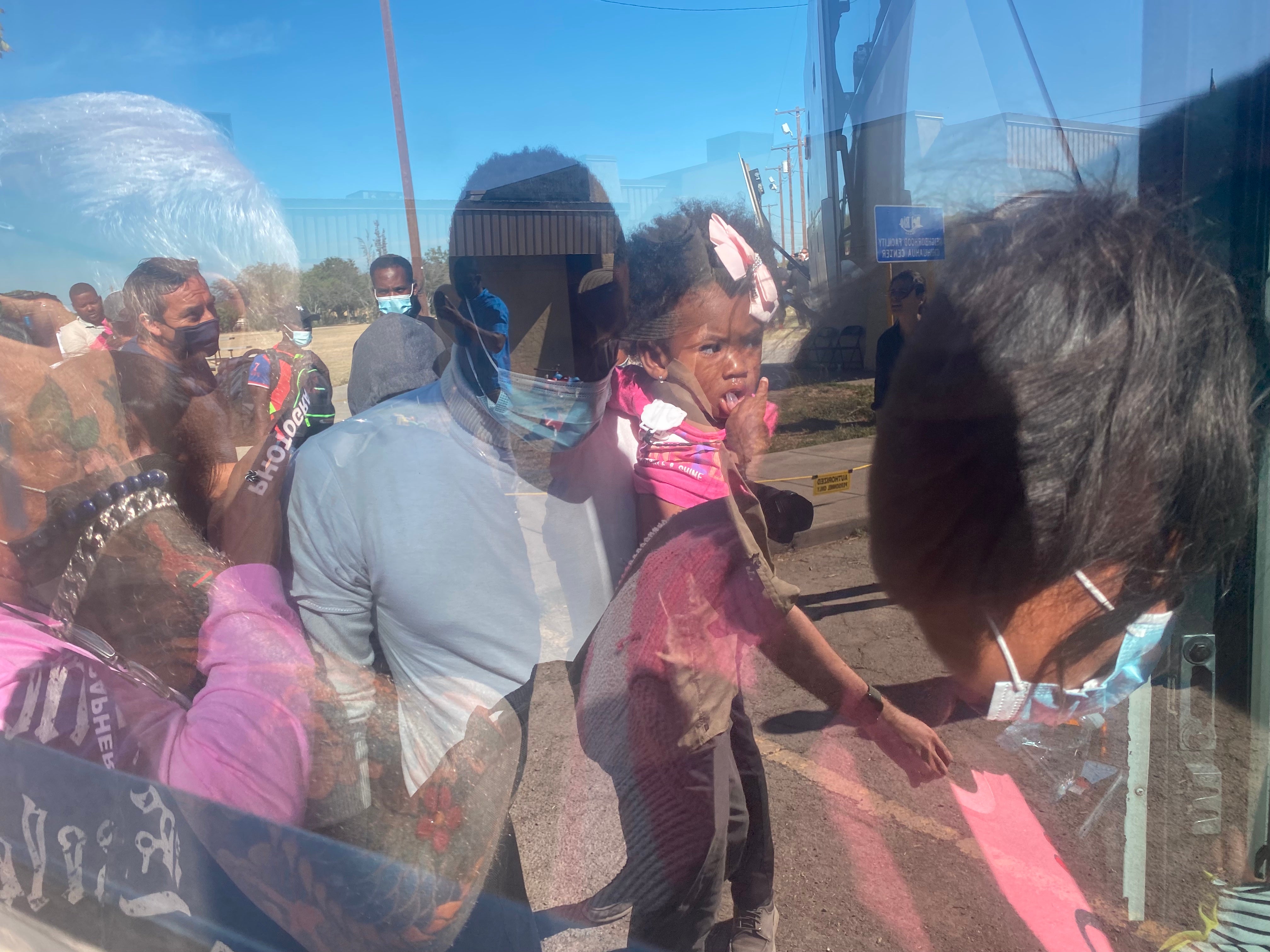
Those images sparked outrage among Democrats, while Republicans seized on the scenes of chaos to embarrass the Biden administration. Texas’s Republican governor Greg Abbott sent dozens of vehicles from the state’s Department of Public Safety (DPS) to create what he described as a “steel barrier’, ostensibly to stop migrants from crossing the river.
In the interim, Del Rio was transformed into something like a militarised zone. Convoys of border patrol and state police vehicles sped along the highways. When they weren’t standing guard near the border, uniformed officers from state and government agencies filled the hotels and restaurants.
The rapid growth of the camp under the International Bridge in Del Rio, which crosses into Mexico, quickly became a crisis for the White House. Soon, the order was given to dismantle the tents and process the thousands who had taken up shelter there.
Construction and demolition vehicles were seen heading to the border site, and video soon emerged of them taking down the temporary structures. By Friday morning, a border patrol official told The Independent that only 150 people remained.
At the same time the camp was being dismantled, the Biden administration dramatically increased expulsions. Minibuses sped from the border camp to the airport day and night, carrying people to flights that would take them back to Haiti.
Taisha Saintil, with the Haitian Bridge Alliance, an advocacy group for Haitian migrants, watched the buses come and go, and could not figure out why some people were being expelled and others allowed in.
“Although there were families that were allowed in, there were lots of families that were still expelled. There were still babies that were still expelled. That’s why the criteria are unclear,” she said, as she stood outside a transfer centre in Del Rio from where migrants stopped after being processed by border authorities. According to flight manifests seen by Agence France Presse, nearly half of the 327 Haitians deported by the US on one day were aged under five and born abroad.
Critics of the expulsions said they denied people the right to claim asylum and forced people who had escaped Haiti years ago back into a precarious situation. After several days of frequent bus trips from the border to the airport, the Biden administration’s special envoy to Haiti resigned in protest.
Daniel Foote, who was appointed to the position only in July, criticised the “inhumane, counterproductive decision to deport thousands of Haitian refugees and illegal immigrants to Haiti, a country where American officials are confined to secure compounds because of the danger posed by armed gangs to daily life”.
“Our policy approach to Haiti remains deeply flawed, and my policy recommendations have been ignored and dismissed, when not edited to project a narrative different from my own,” he wrote in a letter to secretary of state Antony Blinken.
Alejandro Mayorkas, secretary of the Department of Homeland Security, called the expulsions “a public health imperative” during an appearance on NBC’s Meet the Press on Sunday.
He added that the measures were necessary “to protect the migrants, themselves, the local communities, our personnel, and the American public.”
The DHS did not respond to questions from The Independent about the criteria for expulsion, but Mr Mayorkas said unaccompanied children were not expelled.
The rapid expulsions come at a time when the security situation in Haiti is rapidly deteriorating further still. In just the past few months the country has seen its president assassinated, another deadly earthquake that killed more than 2,000 people and displaced 112,000, and a dramatic increase in gang violence.
“The country of Haiti is in a state of complete security meltdown,” Ariana Sawyer, US border researcher for Human Rights Watch who tracks migration flows, told The Independent. “People don’t have places to live, people don’t have anything to eat, there are armed gangs running the streets, so the idea that the US government would send people back to Haiti now, especially during a global pandemic, is only going to create more insecurity in Haiti leading to even more migratory flows,” she added.
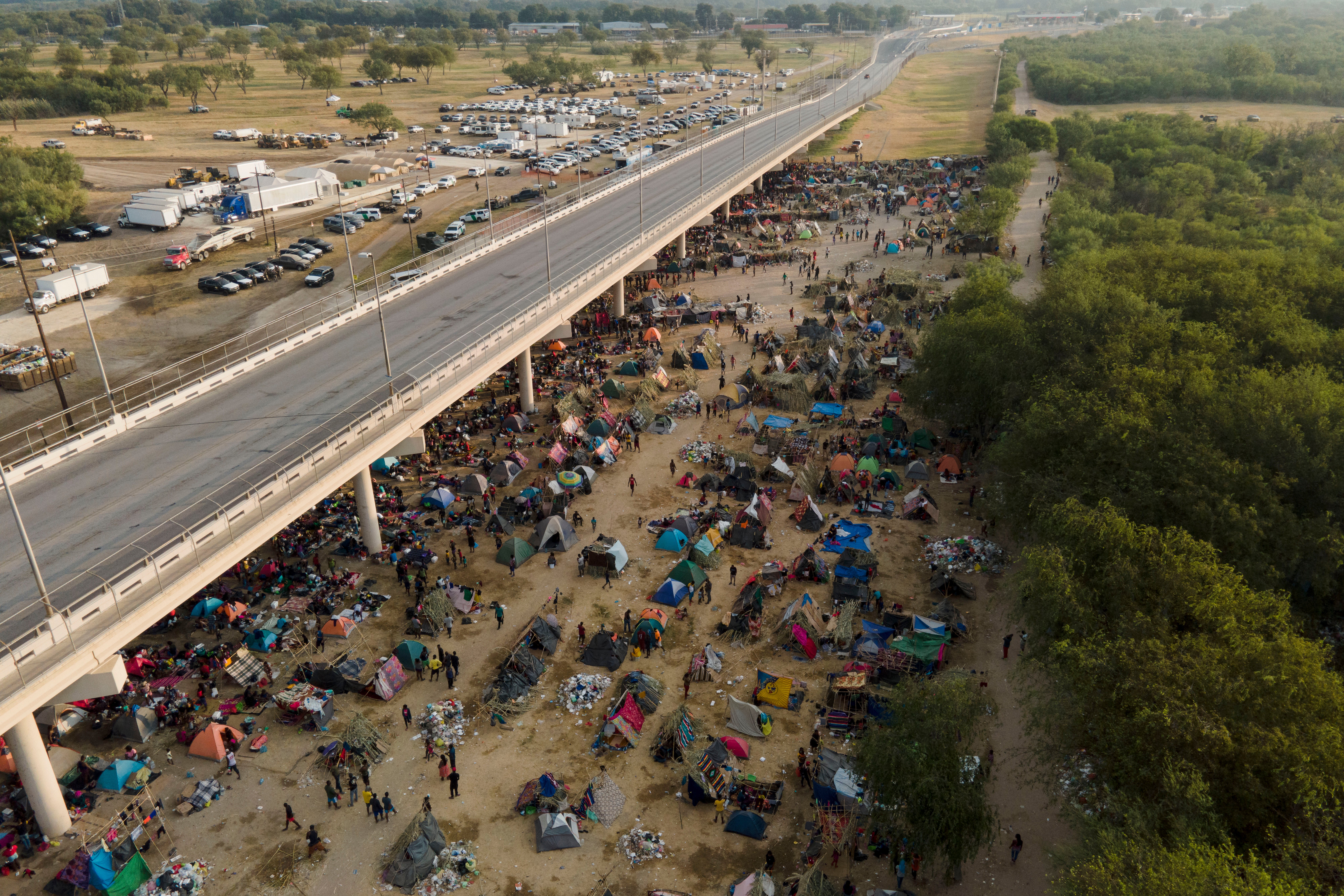
Ms Sawyer argued that the Biden administration had merely picked up where the Trump administration had left off by treating the border as a security issue, rather than a humanitarian one.
“There’s a humanitarian crisis at the border which requires a humanitarian response. But this administration has continued to invest in violent and discriminatory deterrence policies,” she said.
“We’re talking about some of the most vulnerable people in the world – they are resourceful and determined, but vulnerable. They’ve often already experienced a lot of trauma, and we’re using these horrific policies that are designed to make crossing the border the most painful or abusive or difficult on these people who are the least likely to be deterred in the first place.”
Ms Saintil, who herself emigrated to America with her parents when she was a child, still has family back in Haiti. She was motivated to help the newly arriving migrants because she knew what they were leaving behind.
“It’s really heartbreaking. Just this past couple of months alone we have seen the assassination of the president, we’ve seen gangs taking control of major cities, we’re seeing kidnapping on the rise, we’re seeing poverty — people are living on less than 15 cents a day. And now you have people being sent back to that. You have a burning house and then you’re just adding more gasoline to that house,” she said.
What is needed, she added, is a policy that allows fleeing migrants the chance to apply for asylum.
“People need to be able to seek asylum, it’s a legal right. Had there been a border that was open where people could go in and say: ‘I fear for my life,’ this wouldn’t have happened.”
“Title 42 needs to be rescinded immediately, and there needs to be a fair, effective process that doesn’t mistreat people, especially black migrants, because we all saw the photos,” she added.
Join our commenting forum
Join thought-provoking conversations, follow other Independent readers and see their replies
Comments

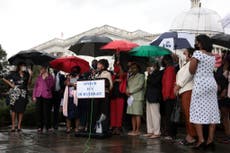
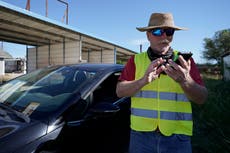
Bookmark popover
Removed from bookmarks